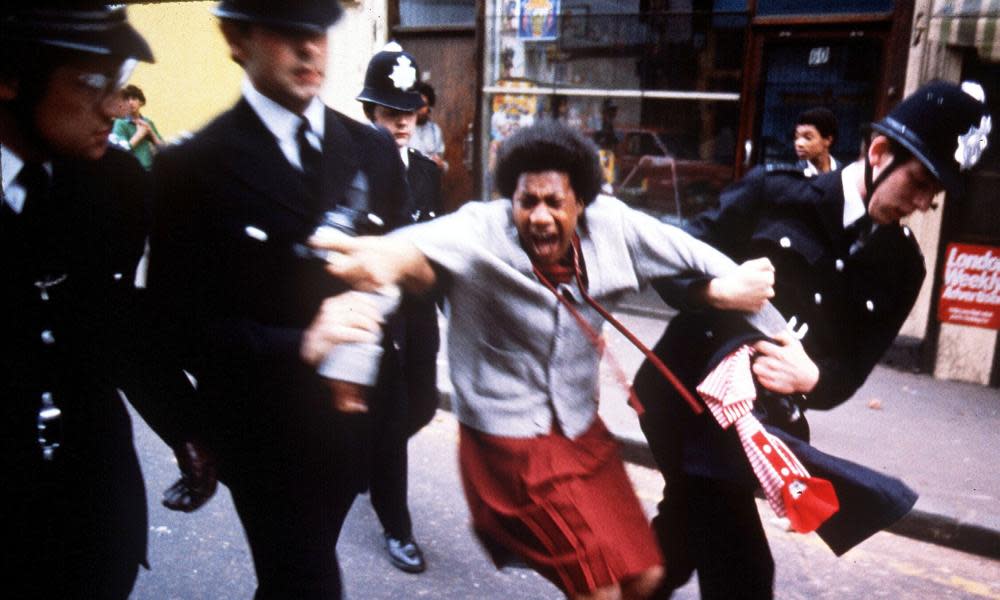I’m proud of Britain’s Black History Month. But now it needs a rethink | Linda Bellos

I was the politician responsible for introducing Black History Month to Britain exactly 30 years ago. The idea had originated within the Greater London Council, and I had inherited it after the organisation’s abolition in 1986. At the time I was leader of Lambeth council.
The 1980s was a time when the status of black people in this country was still being openly questioned. The National Front, then still a political force, was demanding that we be deported. Police harassment of black people was rife, and had sparked three separate waves of massive civil unrest in cities across Britain. In our schools black children were being stereotyped as low achievers and excluded at shocking rates. And, as we now know, the closest aides of the prime minister Margaret Thatcher believed black people had “bad moral attitudes”.
But four decades after the Empire Windrush had docked in Tilbury, bringing the first postwar arrivals from the Caribbean, it was also a time when many of my generation recognised that our parents were not going to return to the Caribbean, Africa, India, Bangladesh or Pakistan. We, who had been born in the UK or lived here from childhood, knew we were here to stay.
Some of us were concerned about the way our young people, especially men, were facing high unemployment and criminalisation, and we wanted to provide another, more positive, model of how things could be. I for one understood the frustration that these young men endured and there was not much we had the power to do; but we could offer a sense of history, achievement and continuity.
Black History Month provided an opportunity to show a history we knew existed but which had been hidden. Few of us – and by us I mean British people of all ethnicities – knew much about the role our nation had played in colonising and absorbing some of these “native” countries and cultures. I myself often had to say “we did not come to Britain for the weather” when questioned, but it was very clear that most white British people did not know what positive contributions black people made, and continue to make, to the UK.
For example the story of the actor Ira Aldridge, who played key Shakespearean roles on the London stage in the 1820s. Or Harold Moody, who came to London to become a doctor in 1904 and set up the League of Coloured Peoples. We wanted to create a record of involvement and achievement in British life that went beyond the Empire Windrush; to focus on what was missing from British life.
I believe we initially achieved this, in recognising and promoting the achievements of Bishop Wilfred Wood, Lord Pitt, Dame Jocelyn Barrow, and Bill Morris – who had all been recognised for their work singularly but who we celebrated as part of a legion of achievers. They had made history, and we felt it vital to acknowledge their contributions. In Lambeth alone, we were able to hold numerous information and awareness-raising events.
One thing I have learned, though, and which I passed to those who have set up the LGBT History Month, is to keep control. We did not try to steer or control Black History Month, and that was a mistake – since what we have seen among all the excellent projects, scholarship and drama has been some rubbish. We found schools that highlighted black people who were in the news – but for breaking the law, not for positive social achievements. One, in the late 80s, believed that all it needed to add to its teaching was “a flavour of chilli peppers”.
Other schools felt they “ticked a box” by simply inviting children to come dressed as pop stars or athletes – reinforcing another stereotype, that black people’s only worthwhile contribution is in sports or entertainment. And this month an east London school had to apologise after suggesting children dressed up as slaves. Now something that reflected how Britain benefited from enslavement, and exploitation of sugar and cotton, might be a good idea.
Another recurrent feature over these past 30 years is how often the work that we do to capture that history goes missing: it seems to get lost one year to the next. It has happened to my own work when I curated an exhibition of the contribution of African, Caribbean and Indian (as was then) men and women to the British army from the 1880s to the 1990s. I do not believe this is deliberate, but I do think it reflects the inequality of esteem for things that are not made by white upper-class men.
And each of these “disappearances” means that knowledge is lost, that it cannot be shared with others, and that the task of researching and building a story of our history starts from scratch each October.
My remedy for what has gone wrong with Black History Month is not to scrap it, but for the Department of Culture Media and Sport to fund it, and to agree an annual theme or topic, overseen by a diverse black committee.
In this way we might see what an extraordinary, diverse and rich nation Britain has become. One that we might all be proud to admire, and that reflects to the rest of the world its achievements of inclusion, equality and multiculturalism.
• Linda Bellos is is a former leader of Lambeth council

 Yahoo News
Yahoo News 
